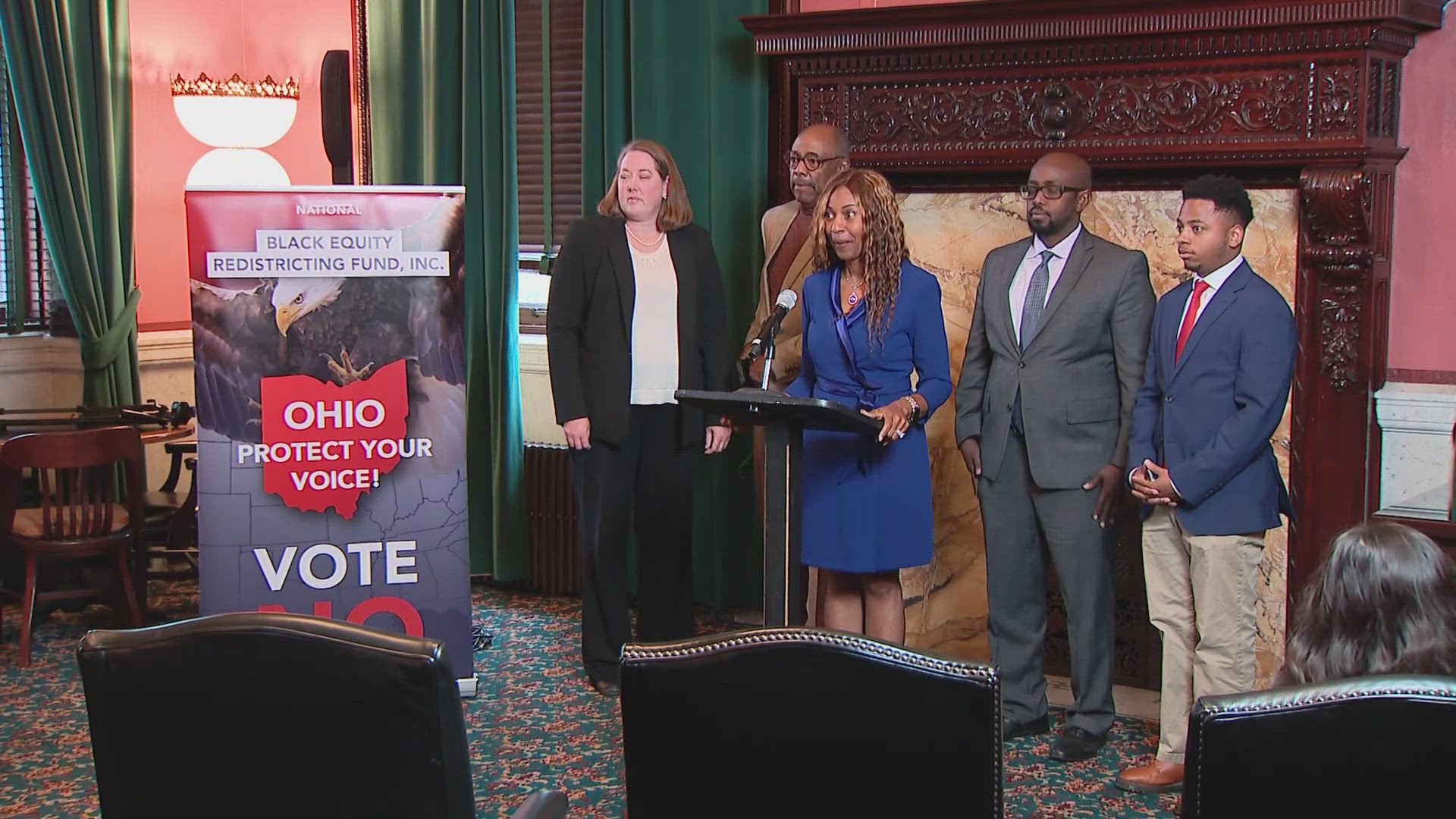COLUMBUS, Ohio — Ohio State Senator Michele Reynolds (R - Canal Winchester) raised concerns Tuesday about the potential impact of Issue 1 on Black representation in the State House and Congress.
Issue 1 is the proposed constitutional amendment that would change who has the power to draw our political maps.
Currently, seven elected politicians sit on the Ohio Redistricting Commission. If voters approve it this November, Issue 1 would replace the current commission with a 15-member citizens commission made up of five Republicans, five Democrats and five Independents. No politicians or lobbyists would be allowed on the commission.
The proposed amendment came about after the State Supreme Court shot down seven legislative and congressional maps drawn by the current commission as unconstitutionally gerrymandered to benefit Republicans.
Those who support the proposed amendment say it will end gerrymandering in Ohio. Those against it say it would require gerrymandering.
At a news conference Tuesday afternoon, Reynolds, the only Black Republican Ohio State Senator, made the argument that Issue 1 could disenfranchise minority voters. She pointed to Michigan, which instituted a similar independent citizens commission to the one proposed here in Ohio.
Reynolds said after the Michigan Independent Citizens Redistricting Commission drew legislative maps, the number of Black lawmakers in the Michigan Legislature fell from 20 to 16. She added that for the first time in 70 years, Detroit, which has a large Black population, does not have a Black representative.
She worries the same thing will happen in Ohio if voters approve issue one.
"I am deeply concerned about the disastrous effects that Issue 1 will have on the Black state legislative and congressional districts in Ohio. Ohio's Issue 1 could lead to a loss of representation for minority communities as seen in Michigan," Reynolds said. "Instead of ensuring fairer maps, the reform could fragment cohesive minority voting blocks, diluting our political influence."
The Ohio Coalition on Black Civic Participation supports Issue 1. Coalition CEO Pierrette "Petee" Talley says the proposal not only explicitly requires the commission to comply with the federal Voting Rights Act, but it also has a major focus on keeping communities together.
"That's why civil rights groups like mine of the Ohio Unity Coalition, the Ohio NAACP and the Ohio Organizing Collaborative are urging a yes vote," Talley said. "We actually can get representation that is fair, that is more balanced, that does not break apart communities or pack them into other communities."
Former Chair of the Michigan Independent Citizens Redistricting Commission, Rebecca Szetela, joined Senator Reynolds and other opponents of Issue 1 at the news conference. She said the Michigan commission has problems, such as members are not accountable to voters, and they had no experience drawing political maps before joining the commission.

